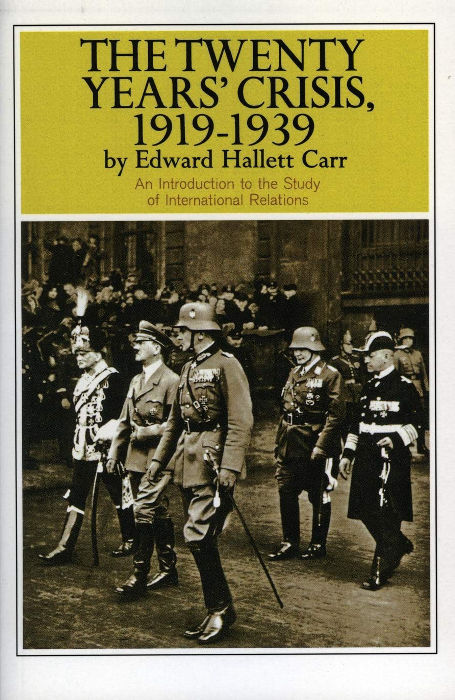Books
E. H. Carr
The Twenty Years' Crisis, 1919-1939
An Introduction to the Study of International Relations
What caused the world to slide back into global conflict so soon after the “war to end all wars”? In The Twenty Years’ Crisis, 1919-1939, E. H. Carr delivers a sharp critique of the idealistic hopes that shaped the post-World War I order, exposing the gap between utopian visions and the harsh realities of international politics.
Written on the eve of World War II, Carr’s classic text dissects the interwar period, arguing that the optimism and legalistic frameworks of the League of Nations and postwar treaties were quickly undermined by the enduring realities of power politics. Carr advances a realist theory of international relations, critiquing the “utopian” liberal idealism of figures like Woodrow Wilson and insisting that international politics are fundamentally shaped by military, economic, and ideological power. He identifies three types of power—military, economic, and power over opinion—and contends that any effective international order must start with a clear-eyed acknowledgment of these forces.
The book is structured in five parts, covering the science of international politics, the causes and effects of the interwar crisis, the interplay of politics, power, and morality, the role of law in international change, and Carr’s conclusions about the future of world order.
Carr’s analysis is both historical and theoretical, using the failures of the League of Nations and the flawed peace settlements after World War I to illustrate the dangers of ignoring realpolitik and the persistent clash of national interests. He argues that the belief in a natural harmony of interests among states is naive, and that international stability depends on balancing competing interests and recognizing the limits of idealism.
While Carr is critical of utopianism, he does not dismiss the importance of morality or the possibility of progress. He suggests that a sustainable international order requires both a realistic appraisal of power and a commitment to gradual improvement, warning that clinging to the status quo or relying solely on lofty principles is insufficient in a world of competing nation-states. Carr concludes that economic reconstruction and a new outlook are essential for avoiding the mistakes that led to the crisis of the 1930s.
The Twenty Years’ Crisis remains a foundational text in international relations, shaping the discipline’s understanding of the tension between idealism and realism. Carr’s insights into the limits of international law, the role of power, and the dangers of ignoring political realities continue to resonate, making this book essential reading for anyone seeking to understand the perennial challenges of global order and diplomacy.

